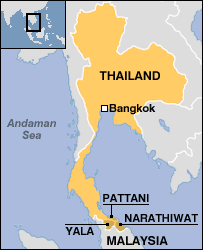 Vietnam: The Asia Times has a fairly detailed article on Vietnam’s transportation bottleneck. Specifically, it takes a look at Vietnam’s port capacity as compared to its neighbors in the region, and how it’s current infrastructure needs to improve if Vietnam wishes to continue to see economic growth. To remedy the issue, the Vietnamese government is calling on private investors to fund more development projects. However, in the current world economy, in combination with Vietnam’s history of extreme corruption in such projects, this strategy does not look hopeful. To make matters worse, Vietnam’s exports have been down, declining for the first time since economic reforms began in the nation. Hanoi has also been forced to devalue its currency by 5% in the last month (which is becoming all too common). Lastly, Vietnam’s growth rate dropped to almost half of its typical growth rate of 7%. It is, at best, uncertain that there will be enough capital inflow to cover the cost of these projects considering the unattractiveness of the investment environment.
Vietnam: The Asia Times has a fairly detailed article on Vietnam’s transportation bottleneck. Specifically, it takes a look at Vietnam’s port capacity as compared to its neighbors in the region, and how it’s current infrastructure needs to improve if Vietnam wishes to continue to see economic growth. To remedy the issue, the Vietnamese government is calling on private investors to fund more development projects. However, in the current world economy, in combination with Vietnam’s history of extreme corruption in such projects, this strategy does not look hopeful. To make matters worse, Vietnam’s exports have been down, declining for the first time since economic reforms began in the nation. Hanoi has also been forced to devalue its currency by 5% in the last month (which is becoming all too common). Lastly, Vietnam’s growth rate dropped to almost half of its typical growth rate of 7%. It is, at best, uncertain that there will be enough capital inflow to cover the cost of these projects considering the unattractiveness of the investment environment.
Philippines: Not that it is shocking, but Filipino President, President Gloria Macapagal Arroyo , seems uninterested in even distancing itself from the The Ampatuan political clan in southern Mindanao, whom are the key suspects in the November 2009 election massacre on the island.
The deputy press spokesperson said that she didn’t think “the president’s friendship with the Ampatuans will be severed.” She further said that “just because they’re in this situation doesn’t mean we will turn our backs on them.” She explained that Arroyo, in her role as chief executive, acts separately from her role in sustaining political alliances, and thus she could still be “friends” with the family even if “they indeed committed the crime.”
Snip
The second factor in this massacre is rido, or clan-based violence. A study published by the Asia Foundation and conducted by Moctar I. Matuan of Mindanao State University-Marawi found that in 337 rido cases from 1994 to 2004, 798 people died and 104 were injured. Although 82 cases were filed in court, only eight assailants were imprisoned. “Not a single rido was settled by the Philippine justice system,” he said.
In southern Mindanao, if you are in power, you’ve got both guns and patronage. Even the backhoe used to dig the trench in which the bodies were found had the name of Gov. Andal Ampatuan, the clan patriarch, on it.
Cambodia: Another story that only surprises those who live outside the region, Cambodia repatriates 20 Uighur political asylum seeker to China, where they will no doubt be tortured, jailed, and executed, despite Western outcry and international conventions. In return China guarantees $US 1.2 billion in aid and loans, this is in addition to the 900+ million given to Phnom Penh.
Uighur leader Rebiya Kadeer said the deportation reflected Beijing’s growing clout in the region, saying Phnom Penh’s decision was “no doubt influenced by enormous Chinese pressure, backed by hundreds of millions of dollars in aid”.
“Governments of countries neighbouring China are reluctant to take any action that would displease Chinese authorities, leaving Uighurs nowhere to flee,” Kadeer said.
Expect more of this, as ASEAN just recently issued a joint statement with China on “legal assistance”.
Thailand: Two interesting articles on Thailand’s ongoing separatist wars in its Muslim-Malay south. A Japan Time’s article looks at the high level of continual violence in the region and recommends that Bangkok provide the 3 southern provinces with more political space, which is unlikely. A more detailed article from Asia Times, discusses the allusive nature of the separatist, the corruption that aids in fueling the violence in the region, the drug trade, and Malaysia’s government’s position 0n the situation.